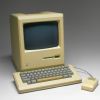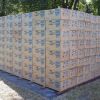-
 +37 +4
+37 +4The Mac turns 40: How Apple's rebel PC almost failed again and again
In 1984, a $2.5k computer - with a 9-inch black-and-white display, 128KB RAM, 400 KB floppy drive, and built-in networking - changed everything. Until it didn't. Then these two things saved the Mac.
-
 +29 +7
+29 +7The Inside Story of PC Magazine, PC World, and Macworld's Origins, as Told by David Bunnell
In the early 1990s, David wrote a proposal for a book about his life and adventures in publishing, covering the founding of PC Magazine, PC World, Macworld, and more. The book didn't happen, but the proposal is good reading in itself.
-
 +28 +5
+28 +5The Hobbes OS/2 Archive logs off permanently in April
Fans of the tech dinosaur have a few months to fill their drives with software
-
 +31 +4
+31 +4Apple pays out over claims it deliberately slowed down iPhones
The tech giant is compensating US customers and faces similar allegations in the UK.
-
 +59 +14
+59 +14This is how to protect your computers from LogoFAIL attacks
This obnoxious constellation of firmware attacks takes over computers. Here's which devices are vulnerable and what you can do to protect them.
-
 +50 +11
+50 +11Amazon Building its Own Linux-Based OS to Replace Android
Amazon is reportedly working on its own Linux-based OS to replace Android on its Fire TVs, smart displays, and other non-tablet devices. —What's that?
-
 +48 +6
+48 +6Privacy advocate challenges YouTube's ad blocking detection
Irish eyes may not be smiling
-
 +40 +7
+40 +7The Cobra Effect: Why Anti-Adblock Policies Could Hurt Revenue Instead
-
 +45 +6
+45 +6Unpacking Google’s new “dangerous” Web-Environment-Integrity specification
Why Vivaldi browser thinks Google’s new proposal, the Web-Environment-Integrity spec, is a major threat to the open web and should be pushed back.
-
 +45 +8
+45 +8Windows Phone gets revenge on YouTube from the grave by helping users bypass its ad-blocker-blocker
The Windows Phone user agent bypasses YouTube's annoying anti-ad-blocker pop-up.
-
 +23 +3
+23 +3Captcha
-
 +51 +7
+51 +7How to Install Firefox as a .Deb on Ubuntu 22.04 (Not a Snap) - OMG! Ubuntu
A short guide on how to install Firefox from a PPA on Ubuntu 22.04 and remove the Firefox Snap. Doing this gets you a faster Firefox that can do more OOTB.
-
 +55 +6
+55 +6Red Hat's Source Code Lockout Spells Disaster for CentOS Alternatives: Rocky Linux and AlmaLinux in Trouble?
Red Hat's new move means that RHEL-source code is only accessible to users with subscriptions. What do you think about this?
-
 +41 +7
+41 +7A Tribute to Bram Moolenaar, The Maestro Behind Vim Code Editor
In a profound loss to the world of computing and software development, Bram Moolenaar, the creator of the widely respected Vim code editor, has passed
-
 +40 +1
+40 +1Tired of proving you're not a robot? Say goodbye to Captcha boxes.
You have probably seen Captchas - puzzles that ask you to pick out all the bicycles in an image or to decipher letters that are written in squiggly lines. These riddles are designed to let you buy concert tickets or sign up for Netflix but keep out someone who is using computers to hammer a bank website with bogus credit card applications or employing rapid-fire software to buy video game consoles before you have a chance.Subscribe to The Post Most newsletter for the most important and interesti
-
 +36 +5
+36 +5Using a Commodore 64 on the modern internet!
1 comments by Gozzin -
 +36 +9
+36 +9Linux hit over 3% desktop user share according to Statcounter
Do my eyes deceive me? Apparently not. According to Statcounter, the Linux share on the desktop has actually now passed 3% for the first time.
-
 +26 +8
+26 +82,200 Forgotten Vintage Computers Are Being Liberated From a Barn in Massachusetts
The NABU Network was an obscure, forgotten part of Canadian tech history—until the day the internet noticed that thousands of NABU machines were being sold on eBay at rock-bottom prices.
-
 +28 +7
+28 +7Happy 50th birthday, Ethernet
Why has Ethernet endured as a ubiquitous data framing protocol over all these years?
-
 +23 +4
+23 +4Cooler Master’s bizarre gaming shoe costs a cool $6,000
People who love PCs and people who love sneakers are both deeply enthusiastic about their chosen passions, but what if you’re into both? Well, Cooler Master thinks it has the answer in the form of its Sneaker X custom PC, an utterly bizarre computer that is shaped like a chunky, garish piece of premium footwear.
Submit a link
Start a discussion




















